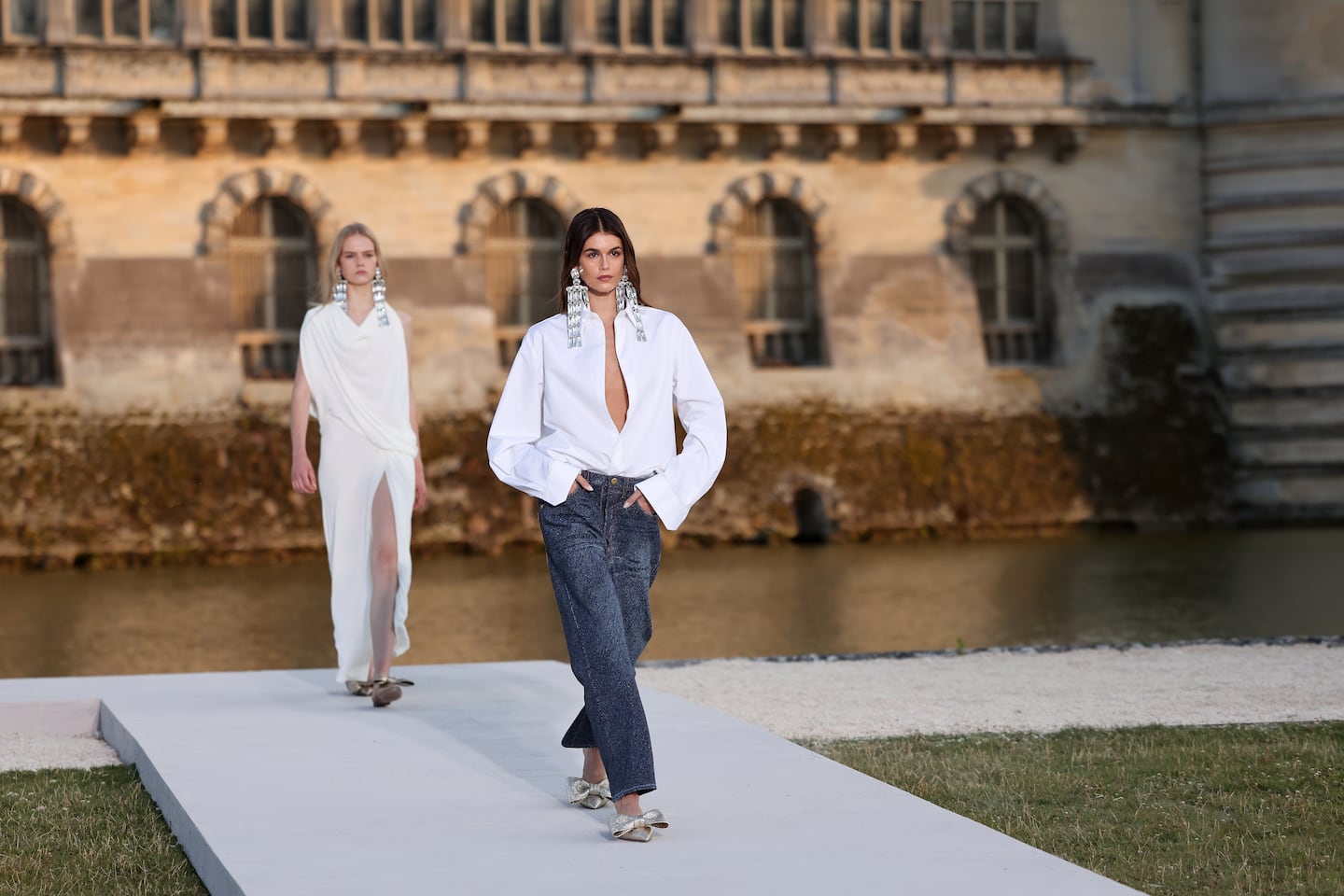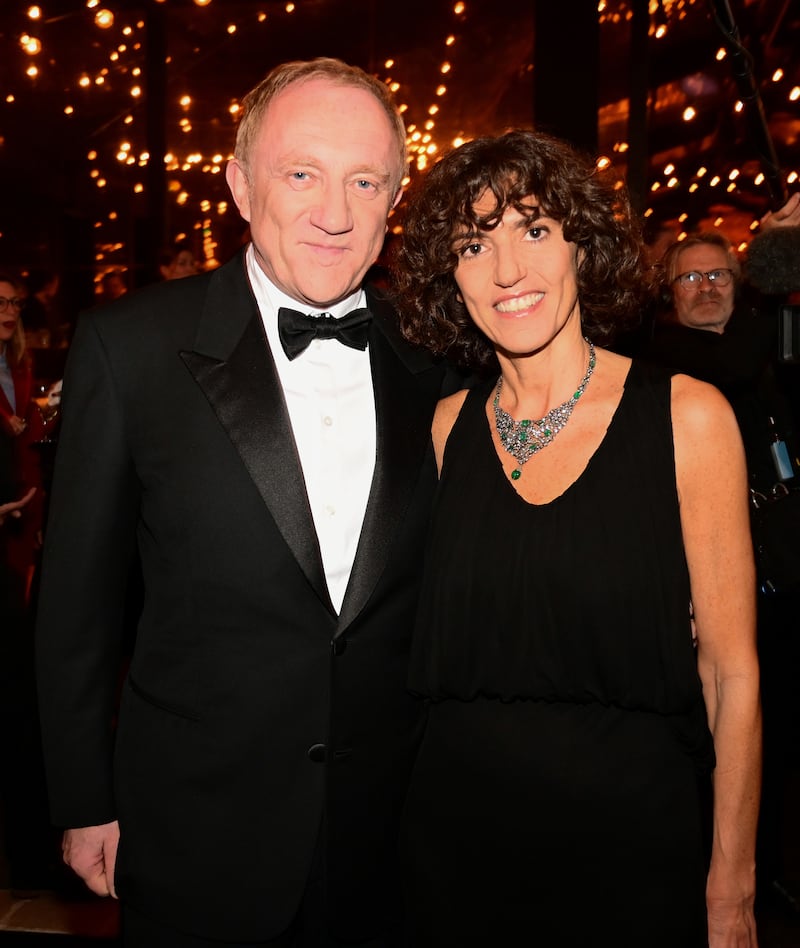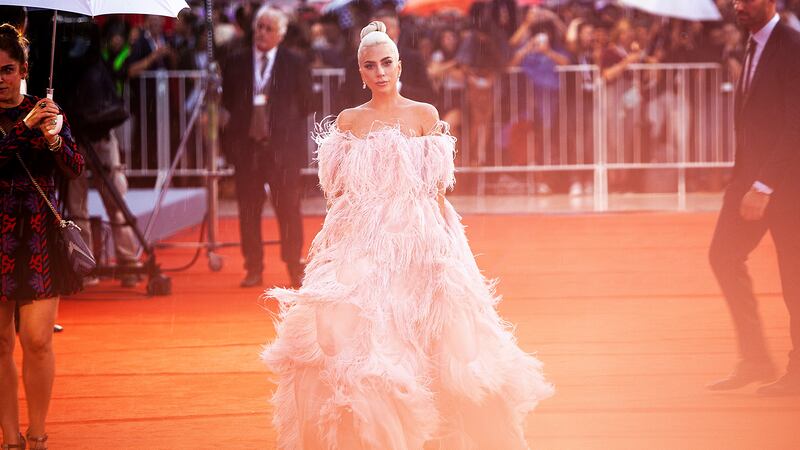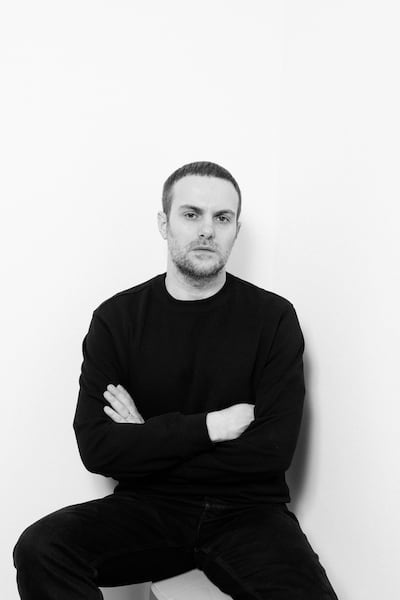
The Business of Fashion
Agenda-setting intelligence, analysis and advice for the global fashion community.

Agenda-setting intelligence, analysis and advice for the global fashion community.

Kering will acquire 30 percent of Italian couture house Valentino for €1.7 billion — implying a valuation north of €5 billion — as part of a broader partnership with Qatari investment fund Mayhoola, the French conglomerate said on Thursday. The agreement gives Kering the option to acquire 100 percent of Valentino “no later than 2028.”
“We are honoured to have been chosen by Mayhoola to develop Valentino as well as to work on other opportunities,” Kering chairman François-Henri Pinault said, calling the deal a “first step” in its partnership with Mayhoola. Mayhoola, an investment fund with links to the Qatari royal family chaired by Rachid Mohamed Rachid, could eventually invest in Kering as part of the alliance, the group said.
Mayhoola, which also owns Balmain and Pal Zileri, has been at a crossroads with the development of its fashion holdings. With brands too big to let stagnate, yet too small to compete with the sector’s biggest players, Mayhoola has been seen by industry observers as needing to either scale up or sell out.
For Kering, which has faced mounting pressure over its lacklustre stock price and several years of underperformance at its flagship label Gucci, the deal is the latest in a series of shakeups aimed at reviving growth and reassuring investors.
ADVERTISEMENT
Last month the group bolstered the credibility of its ambition to build a beauty division by acquiring the cult high perfume brand Creed (for which it reportedly paid $3.8 billion). Then last week, the group reshuffled its executive ranks, ousting longtime Gucci chief executive officer Marco Bizzarri and naming Saint Laurent chief Francesca Bellettini deputy CEO overseeing all of the group’s brands.

In recent months, the situation had become increasingly dire. Kering announced the Valentino deal alongside its latest set of results, revealing that Gucci’s second-quarter sales rose a mere 1 percent on a comparable basis, putting the brand further behind its megabrand peers. (Earlier this week, LVMH’s fashion division and Prada Group both reported 20 percent growth.)
With Kering shares roughly flat since 2019, while LVMH’s valuation has nearly tripled over the same period, and almost no visible progress on its current push to reposition Gucci’s aesthetic under a new designer, investors have been growing impatient. Kering confirmed last week that an activist shareholder, Bluebell Capital, had taken a percent stake in the company. Outlets including Reuters and Le Monde reported that Bluebell was agitating for the group to explore a merger with rival Richemont.
Only a few years ago, when Gucci was flying high under Bizzarri and designer Alessandro Michele, Kering’s momentum might have allowed it to take a controlling position in the Cartier-owner. But today, if Richemont chairman Johann Rupert ever agreed to a tie-up with Pinault, it’s more likely Richemont who would be the one acquiring Kering. (Robust demand for high-end jewellery and an exit plan for loss-making YNAP has seen the Swiss “hard luxury” specialist’s valuation surge.)
On a call on Thursday, Kering sought to reassure investors: chairman Pinault described Valentino’s couture positioning as highly complementary to that of its existing brands, which have been buoyed by the appeal of “aspirational” luxury items like sneakers, logo tees and mini bags. As that segment of the market slows due to high inflation and slower global growth — as well as the end of the post-coronavirus “YOLO” spirit — the group has raced to beef up its business with high net-worth clients who are less likely to scale back their lifestyle amid economic shocks.
Acquiring the Roman brand led by former Gucci chief merchandising officer Jacopo Venturini and star designer Pierpaolo Piccioli would be a handsome step on that journey. Still, with €1.4 billion in annual sales and €350 million in EBITDA, Valentino will hardly offset the stagnation at Gucci, Kering’s biggest and most profitable brand.

Restoring momentum at Gucci as it targets mid-term growth from €10 to €15 billion remains the top priority. Managing director Jean-François Palus, who is stepping in as Gucci’s interim CEO after Bizzarri’s exit, “knows the Gucci organisation inside-out,” Pinault told investors. “I know he’s going to be immediately operational. That was my main concern — to have immediate efficiency.”
Regarding new Gucci designer Sabato de Sarno’s September debut, Pinault added that the group was “making sure it’s not just a fashion show, but that we have a full program of amplification.”
ADVERTISEMENT

Still, employees, managers, investors and buyers are all likely to remain on tenterhooks over how De Sarno’s vision will land, and whether it will be enough to turn the business around — particularly as it’s set to be rolled out in an uncertain market, at a label that is trying to build a more stable brand platform and assert its heritage story with its C-suite in flux.
In addition to Bizzarri, several top executives in the brand’s design studio have exited in recent months. So has longtime marketing and communications boss Robert Triefus (who took up a new role as CEO of Stone Island this spring).
One might hope to see Gucci drumming up excitement for the debut of its new designer. But except for a few heritage-focused initiatives — like placing monogrammed weekend bags on tennis star Jannik Sinner — the high turnover (and high pressure) has caused the brand to mostly go quiet.
The former CFDA president sat down with BoF founder and editor-in-chief Imran Amed to discuss his remarkable life and career and how big business has changed the fashion industry.
Luxury brands need a broader pricing architecture that delivers meaningful value for all customers, writes Imran Amed.
Brands from Valentino to Prada and start-ups like Pulco Studios are vying to cash in on the racket sport’s aspirational aesthetic and affluent fanbase.
The fashion giant has been working with advisers to study possibilities for the Marc Jacobs brand after being approached by suitors.